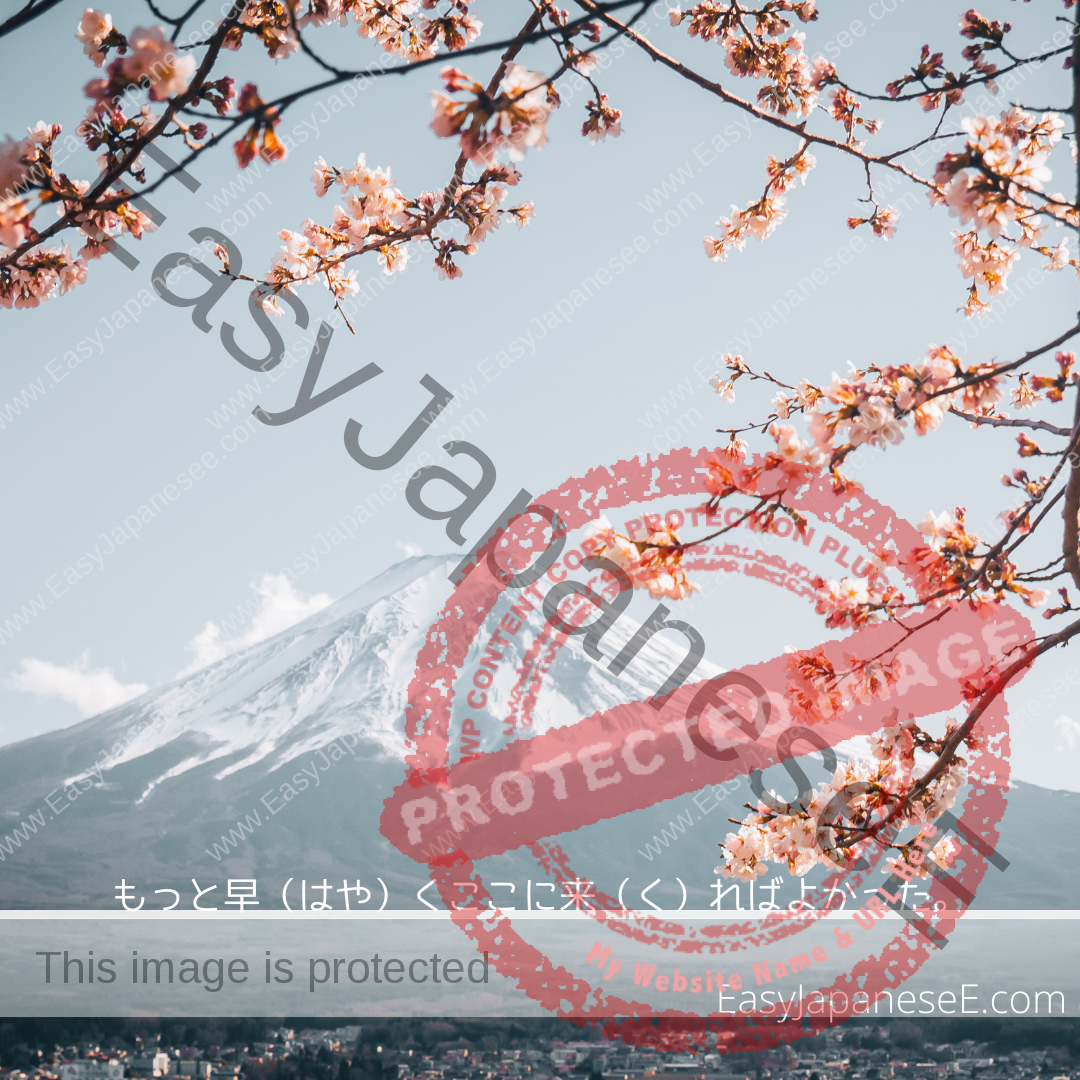
Today’s Grammar Point: ~ばよかった/~なければよかった
Today’s grammar point is ~ばよかった/~なければよかった, which is the past tense of the expression, ~ばいい/~なければいい. ~ばよかった/~なければよかった is an expression to state a regret, “I should have ~” or “I shouldn’t have ~.” It often accompany the adversative conjunction のに to connect to the next part of the sentence. If のに is used at the end of the sentence, ~ばよかったのに emphasises the speaker’s regret or can be used as a light criticism to the other person, “you should/shouldn’t have~.”
Connection
- [ばform verb] + よかった
- [ないform verb] なければ よかった
For ばform, please read this post
Examples
もっと早くここに来ればよかった。
I wish I had come here sooner.雨が降らないうちに買い物に行けばよかった。
I should have gone shopping before it started to rain.大学生の頃、もっと勉強すればよかった。
I should have studied more when I was a university student.おべんとうを持ってくればよかった。
I should have brought a packed lunch.こんな物買わなければよかった。
I wish I hadn’t bought something like this.もっと早く家を出ればよかったのに、バスに乗り遅れて遅刻してしまった。
I wish I had left home earlier, but I missed the bus and was late.昨日言えばよかったのに、言いそびれてごめんね。
I should have said it yesterday. I’m sorry I didn’t tell you.電話すればよかったのに。
I should have called.
or
You should have called.あんなこと言わなければよかったのに。
I wish I hadn’t said that.
or
You shouldn’t have said that.あんな男と会わなければよかったのに。
I wish I/you/she hadn’t met such a man.
Please visit my JLPT N3 Grammar page for more JLPT N3 grammar item.
If you liked this article, please share it with your friends using the social media buttons below. Also, your clicks on ads on this page help covering the cost of running this website. Your support will be much appreciated.


One Reply to “~ばよかった/~なければよかった”